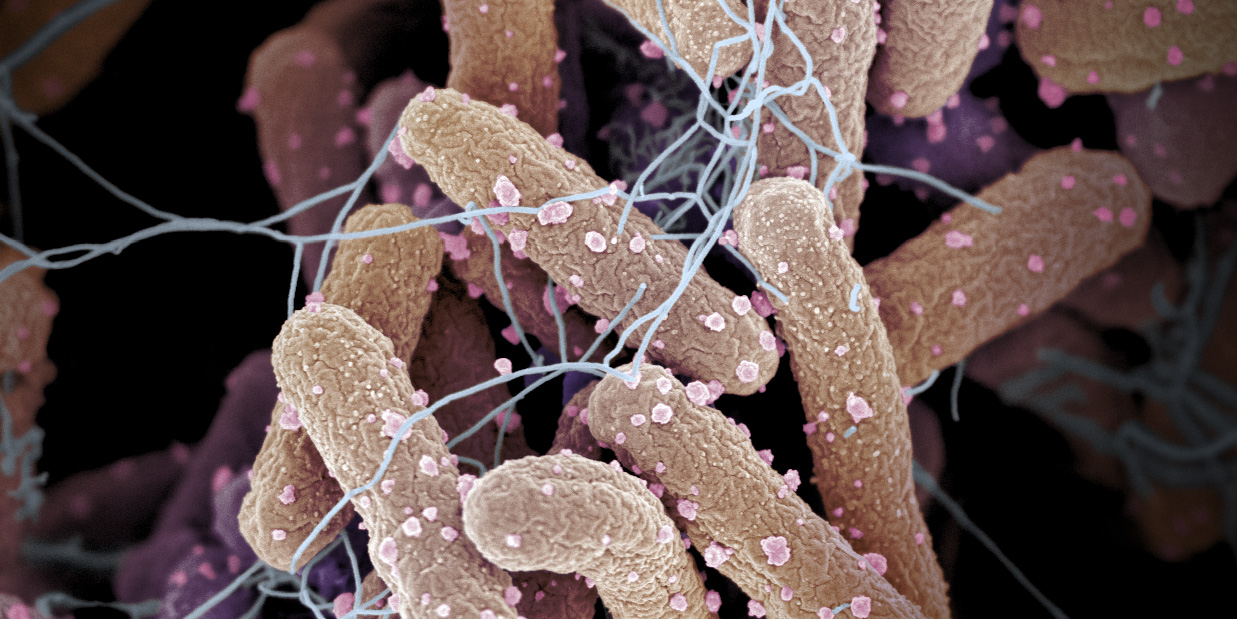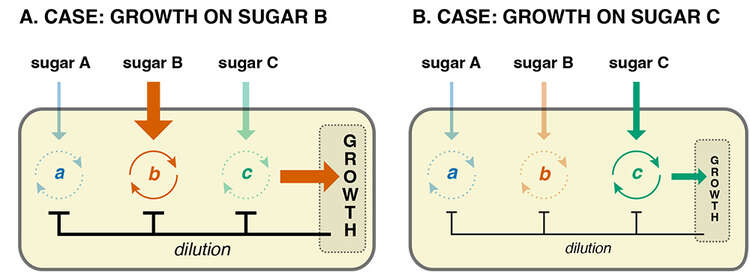Researchers led by Prof. Erik van Nimwegen at the Biozentrum, University of Basel have discovered a new mechanism in bacteria that controls their response to prevailing environmental conditions. They derived their theory from a simple yet interesting observation: The growth rate of bacteria and their sensitivity to signaling molecules seem to be related. The research team subsequently demonstrated the underlying mechanism proposed by the theory in E. coli bacteria. The results of the study have now been published in "Science Advances."
A simple and fascinating mechanism
"We discovered that the slower a cell grows, the more sensitively it responds to environmental signals," explains first author Thomas Julou. "What particularly fascinated us is the simplicity of the mechanism and how generally it presumably occurs across biological systems." When life is going well and cells are growing rapidly, they ignore the environmental "noise." When things are going badly, however, they "listen" very carefully, exploring the environment and deriving new survival strategies.
The underlying theory: The growth rate of a cell sets the rate at which signaling molecules within the cell are diluted, including those involved in gene regulation. In rapidly growing cells, signaling molecules disappear more quickly due to this dilution, so that external stimuli are damped and the cell effectively perceives them less strongly. In slow-growing cells, on the other hand, the signaling molecules persist longer and can accumulate more easily, making the cells more sensitive to environmental conditions.




